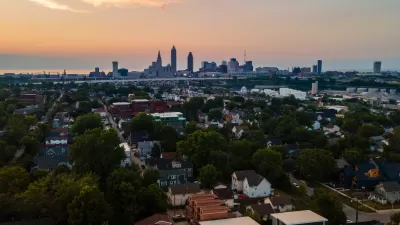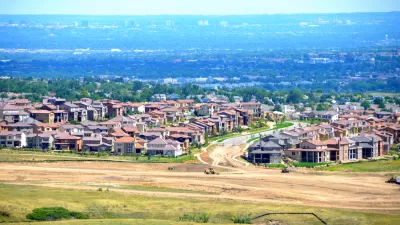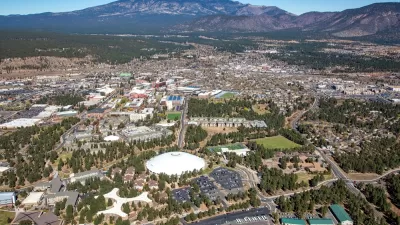Roger E. Eastman recounts the process and product of a recent effort by Flagstaff, Arizona to replace an outdated zoning code with an innovative hybrid of form-based and Euclidean elements.
Along with co-authors Daniel Parolek and Lisa Wise, Eastman provides a detailed case study of the process by which the code was assembled and the community was engaged. The result of the process was a unique hybrid code that, "will be repaid in a more efficient, more equitable, and easier-to-use zoning system," and also, "changed the generally negative perception of city planners."
According to the authors, the crucial first step in assembling the hybrid code was to distinguish "walkable urban" from "drivable suburban" areas, upon which the form-based and conventional portions of the code would be respectively applied.
One innovative aspect of the new Flagstaff code is that, "Unlike other hybrid approaches in which the FBC [form based code] is an exception within an otherwise conventional zoning code framework, the Flagstaff code defaults to walkable urbanism and makes drivable suburban development the exception."
The article goes on to detail specific innovative policies, lessons learned, and the successful public engagement strategy .
FULL STORY: Going Hybrid

Planetizen Federal Action Tracker
A weekly monitor of how Trump’s orders and actions are impacting planners and planning in America.

Maui's Vacation Rental Debate Turns Ugly
Verbal attacks, misinformation campaigns and fistfights plague a high-stakes debate to convert thousands of vacation rentals into long-term housing.

Restaurant Patios Were a Pandemic Win — Why Were They so Hard to Keep?
Social distancing requirements and changes in travel patterns prompted cities to pilot new uses for street and sidewalk space. Then it got complicated.

In California Battle of Housing vs. Environment, Housing Just Won
A new state law significantly limits the power of CEQA, an environmental review law that served as a powerful tool for blocking new development.

Boulder Eliminates Parking Minimums Citywide
Officials estimate the cost of building a single underground parking space at up to $100,000.

Orange County, Florida Adopts Largest US “Sprawl Repair” Code
The ‘Orange Code’ seeks to rectify decades of sprawl-inducing, car-oriented development.
Urban Design for Planners 1: Software Tools
This six-course series explores essential urban design concepts using open source software and equips planners with the tools they need to participate fully in the urban design process.
Planning for Universal Design
Learn the tools for implementing Universal Design in planning regulations.
Heyer Gruel & Associates PA
JM Goldson LLC
Custer County Colorado
City of Camden Redevelopment Agency
City of Astoria
Transportation Research & Education Center (TREC) at Portland State University
Jefferson Parish Government
Camden Redevelopment Agency
City of Claremont





























